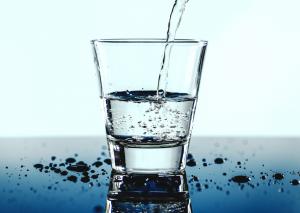- YourGovernment
-
OurCommunity
-
- About Tualatin Advisory Committees Animal Services Community Involvement City Codes City Council City Projects
- Community Crime Reports Customer Service Request Explore Tualatin Now Fire Library Municipal Court Tualatin Today
- Parks & Recreation Passports Permits & Forms Planning & Zoning Police Volunteer Tualatin Moving Forward
-
-
ForVisitors
-
- Parks, Greenways, Recreation and Library Library Parks Public Art Parks and Recreation
- Shopping, Dining, and Entertainment Chamber of Commerce
- Community Events Community Theatre Pumpkin Regatta Special Events
-
- DoingBusiness
-
HowDo I?
-
- Apply for a Job Apply for an Advisory Committee Contact the City Council Get a Copy of a Police Report File a Records Request Find Forms
- Find Planning & Zoning Find Public Transportation Find the City Code Get a Business License Get Email Subscriptions/Notifications Locate City Offices
- Contact the City Pay My Traffic Fine Pay My Water Bill Reserve a Facility Sign Up for a Recreation Program Search the Website Volunteer
-
Important Information about Lead in Your Drinking Water
Frequently Asked Questions
Para obtener más información en español, comuníquese con Betsy Rodriguez Ruef, 503-691-3671.
Where can I find the most recent lead and copper test results?
Our annual Water Quality Report has sample results for the previous calendar year. You can find up-to-date sampling results for all contaminants on the Oregon Health Authority's Drinking Water Online Data website.
Can I test my water for lead?
Yes! Tualatin residents can request a free lead test by:
- Visiting www.portland.gov/water/LeadTest and completing this form at the bottom of the page
- Calling 503-823-7525.
What is the City doing to lower the risk for lead exposure from the drinking water?
The City of Tualatin purchases its water from Portland. The water comes from the Bull Run Watershed and the Columbia South Shore Well Fields. The Portland Water Bureau is in the process of improving Corrosion Control Treatment that will be in place no later than Spring 2022. Making our source water less corrosive means that it will be less likely to dissolve lead from home water fixtures and into the drinking water.
Does this mean that there is lead in the drinking water everywhere in Tualatin?
No. Lead in water is mainly from home or building plumbing, such as lead solder or leaded brass fixtures. Homes at risk for the highest levels of lead are those built or plumbed between 1970 and 1985.
In 2024, the City completed a Lead Service Line Inventory and found zero (0) lead service lines in our system.
How Does the Lead Get into the Water?
The main sources of lead in water in the city are lead solder used to join copper pipes and brass plumbing fixtures and components. In homes built or plumbed with copper pipes before 1985, lead solder was commonly used. When water stands for several hours or more in plumbing systems that contain lead, the lead may dissolve into your drinking water. Water that has been sitting in household pipes for several hours, such as in the morning or after returning from work or school, is most likely to contain lead.
What Are the Health Effects of Lead?
Lead can cause serious health problems if too much enters your body from drinking water or other sources. It can cause damage to the brain and kidneys and can interfere with the production of red blood cells that carry oxygen to all parts of your body. The greatest risk of exposure is to infants, young children, and pregnant women. Scientists have linked the effects of lead on the brain with lowered IQ in children. Adults with kidney problems and high blood pressure can be affected by low levels of lead more than healthy adults.
Questions or concerns about health impacts should be directed to your healthcare provider.
How Can I Reduce My Exposure to Lead?
Run your water to flush out lead
Before using water for drinking or cooking, run the water for 30 seconds to 2 minutes, or until it becomes colder from each tap when it has not been used for several hours. This flushes water which may contain lead from the pipes.
Use cold, freshwater for cooking and preparing baby formula
Do not cook with or drink water from the hot water tap; lead dissolves more easily into hot water. Do not use water from the hot water tap to make baby formula.
Test your water for lead
A lead-in-water test provides a no-cost, in-home lead-in-water sample kit for residential customers along with additional information about reducing exposure to lead. This is available through the Portland Water Bureau to wholesale water customers, including the City of Tualatin. If you would like to have your home tested for lead, visit www.portland.gov/water/LeadTest or call 503-823-7525.
Consider using a filter
If you have elevated levels of lead in water, you may consider purchasing a water filter to remove it. Be sure it reduces lead - not all filters do. Always maintain and replace a filtration device in accordance with the manufacturer's instructions to protect water quality.
Do not boil water to remove lead
Boiling water will not reduce lead.
Test your child for lead
Ask your physician or call 503-823-7525 to find out how to have your child tested for lead. A blood lead level test is the only way to know if your child is being exposed to lead.
Regularly clean your faucet aerator
Particles containing lead from solder or household plumbing can become trapped in your faucet aerator. Regular cleaning every few months will remove these particles and reduce your exposure to lead.
Consider buying low-lead fixtures
As of January 2014, all pipes, fittings, and fixtures are required to contain less than 0.25 percent lead. When replacing plumbing fixtures, look for those with the lowest lead content.
More Information about Testing for Lead
Every year, the City of Tualatin collects samples from a minimum of 60 high-risk, "tier-one" homes (residential homes plumbed with copper pipes and lead solder that were built between 1983 - 1985, just prior to the lead in solder ban). These samples are analyzed at a certified laboratory, and results are reported to City staff.
Results are reported in parts per billion (ppb), which means one part of lead is present for every one billion parts of water. These results are compared to Environmental Protection Agency (EPA) "action levels." 90 percent of the City’s results must be below the action level of 15 parts per billion for lead in water or the City would have to take further action. This is considered an “exceedance of the action level” under state and federal regulations. An exceedance is not a violation and we remain in compliance with the Lead and Copper Rule, but it does trigger the requirement to conduct public education outreach and corrective action.
Resources
- Contact us at 503-691-3095 or email Water Manager Terrance Leahy for questions about the City's lead monitoring program or City-specific questions.
- For more information on reducing lead exposure around your home/building and the health effects of lead, visit EPA’s website at www.epa.gov/lead, or contact your health care provider.
- Visit https://www.epa.gov/sites/production/files/2018-12/documents/consumer_tool_for_identifying_drinking_water_filters_certified_to_reduce_lead.pdf for information about filters that remove lead from drinking water.
- The Portland Water Bureau provides a no-cost, in-home lead-in-water test kit for residential customers along with additional information about reducing exposure to lead.
- City of Tualatin Water Quality Program: E-mail | 503-691-3095 or 503-783-0191
- Request a testing kit or for more information: www.portland.gov/water/LeadTest| Lead Line Phone Number: (503-823-7525
- National Lead Information Center: (800) 424-LEAD (800-424-5323)


